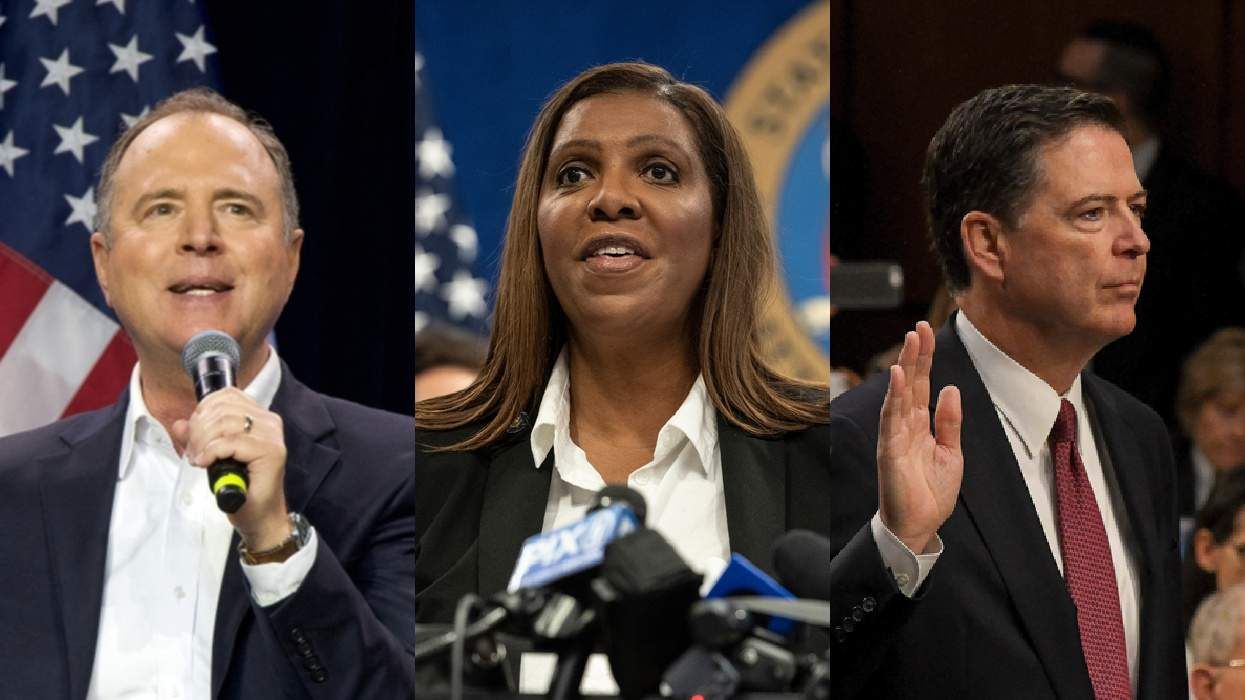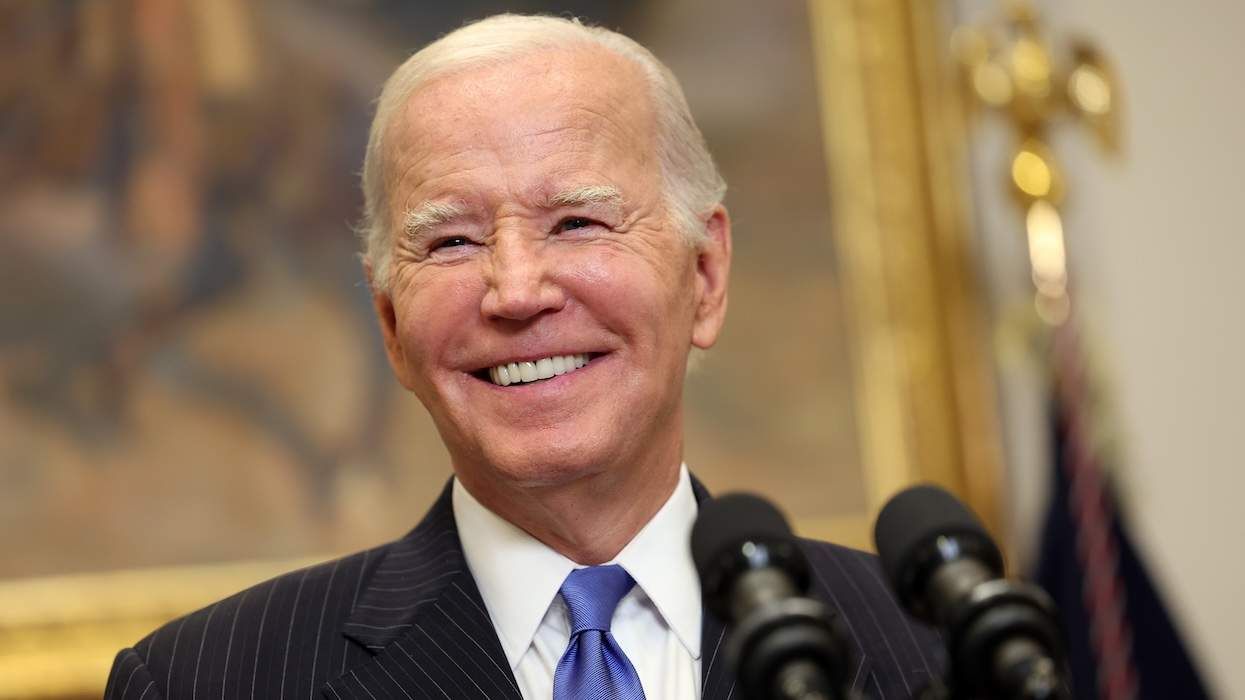Tuesday evening, President Donald Trump is expected to announce his choice for the Supreme Court seat vacated a year ago by the death of Associate Justice Antonin Scalia. The Senate should refuse to confirm any nominee who fails to say, clearly and without equivocation, that the Supreme Court's decisions upholding the constitutional freedom and equality of LGBT Americans over the past 20 years are and will remain the law of the land.
Shortly after his election, Trump assured the country that marriage equality for same-sex couples was secure. In an interview with 60 Minutes' Lesley Stahl, Trump said his own views on marriage equality were "irrelevant because it's already settled. It's law. It was settled in the Supreme Court. I mean, it's done."
But "settled law" is only as secure as the judges who interpret and apply it. The Supreme Court's 2015 decision that established the freedom to marry for same-sex couples was decided by a 5-4 margin. The appointment of just two new justices could tip the balance on the court, blocking further progress and rolling back the LGBT movement's many important victories before the court.
If Trump fails to nominate a candidate who is committed to the principle that marriage equality is settled law, he will not only be breaking his word to the country but endangering the authority of the court and putting LGBT people and their families at risk. There are many highly qualified lawyers and judges, including many appointed by Republican presidents, who have recognized the legal equality of LGBT people and their families and who would not contemplate undoing what is now the law of the land.
So far, it appears unlikely that Trump will put forward such a nominee. Neither the long list of potential candidates Trump's campaign released last year nor the short list of leading candidates circulating recently in the media includes anyone with a proven record of support for LGBT equality. Many of the names being floated have a record of overt hostility to LGBT rights.
This makes it all the more important that the Senate thoroughly examine the nominee's record, views, and temperament. Senators must ask pointed questions and demand clear answers. Ultimately, the Senate should reject any nominee who cannot show a demonstrated commitment to basic constitutional principles of equality and fairness.
Senators should require the nominee to reaffirm his or her commitment to the settled legal principle that LGBT individuals must be treated equally under the law, that they have a constitutionally protected freedom to enter into consensual adult relationships, and that they have the same fundamental right to marry -- and to be treated equally to other married couples -- as straight persons. Senators should ask specifically whether the nominee agrees with President Trump that marriage equality is "settled law." They should also demand that the nominee affirm support for the court's other landmark LGBT equality decisions, which struck down laws criminalizing same-sex intimacy, the federal Defense of Marriage Act, and Colorado's anti-LGBT Amendment 2.
The Senate must decline to confirm any nominee who does not clearly commit to honor these landmark decisions, each of which played a critical part in the LGBT community's progress toward legal equality. Those decisions continue to protect LGBT Americans today as a bulwark against every form of government-sponsored discrimination. A candidate who cannot promise that these protections will remain secure does not have the unwavering commitment to the Constitution's guarantees of liberty and equality that should be required of any justice on our nation's highest court.
This is the time for fair-minded people to stand up for the rights of their LGBT friends, coworkers, neighbors, and family members. Equality isn't and can't be only a partisan concern. It is an American principle -- and one that the Senate must uphold.
SHANNON P. MINTER is the legal director of the National Center for Lesbian Rights and CHRISTOPHER F. STOLL is a senior staff attorney at NCLR.




































































Charlie Kirk DID say stoning gay people was the 'perfect law' — and these other heinous quotes